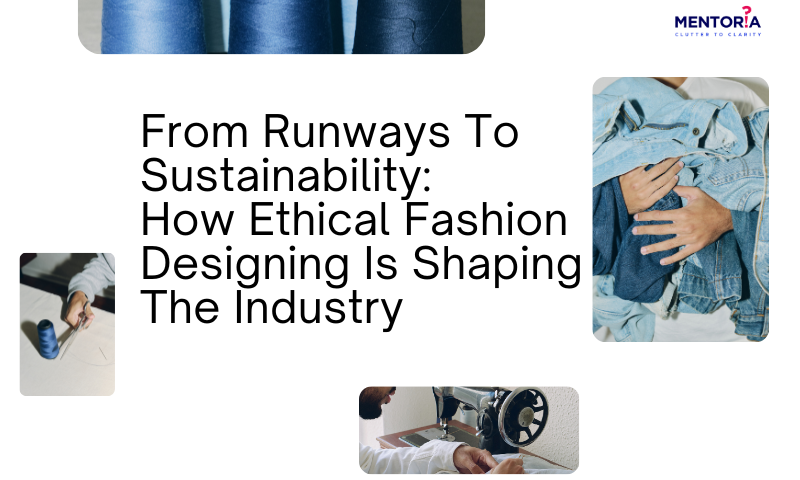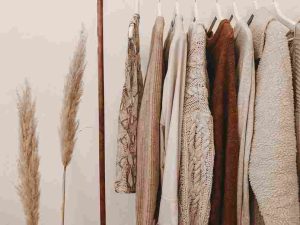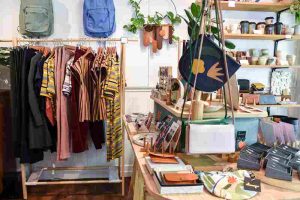From Runways To Sustainability: How Ethical Fashion Designing Is Shaping The Industry

In a world driven by fast fashion and endless consumption, the fashion industry stands at a crossroads. But amidst the chaos and the quest for the latest trend, ethical fashion design has emerged as a beacon of hope, redefining the very essence of this glamorous realm. Step into the world of ethical fashion design, where style meets sustainability, and conscious choices are in vogue. Gone are the days when fashion was solely about trends and glamour. Today, a new wave of designers and brands are revolutionising the industry by prioritising ethical practices, fair trade, and environmental responsibility. Join us as we explore how ethical fashion design is reshaping the way we think about clothing and setting new standards for a more sustainable and inclusive fashion future.
The Ethical Fashion Movement
The Rise Of Ethical Fashion: Shifting Paradigms
Ethical fashion design challenges the conventional fashion model and promotes transparency, social responsibility, and environmental stewardship. Designers incorporate sustainable materials, practise fair trade, and ensure ethical working conditions. Consumers are becoming more conscious of the negative impact of fast fashion and are demanding ethical alternatives. A 2022 survey by Thredup found that 72% of Gen Z consumers are willing to pay more for sustainable fashion. The rise of social media and increased awareness of ethical issues have contributed to the popularity of ethical fashion. The number of ethical fashion brands has increased by 70% in the past five years.
Sustainability As The New Black: Eco-Friendly Materials And Practices
Ethical fashion designers are embracing eco-friendly materials such as organic cotton, recycled fabrics, and innovative alternatives. They prioritise sustainable practices like zero-waste pattern cutting, water-saving techniques, and renewable energy usage. Sustainable materials and practices reduce the fashion industry’s carbon footprint and minimise waste. For instance, organic cotton is a more sustainable alternative to conventional cotton, requiring less water and pesticides. Ethical brands educate consumers about the environmental benefits of choosing sustainable fashion. Did you know that the average garment takes 700 gallons of water to produce?
Ethical Production Processes: Transparency And Traceability
Ethical fashion design emphasises transparency and traceability throughout the supply chain. Designers carefully source raw materials, manufacture garments responsibly, and engage in fair trade practices. Brands provide information about their supply chain, ensuring consumers can make informed choices and support ethical production. Initiatives like blockchain technology are being explored to enhance transparency and accountability in the fashion industry. The Blockchain Alliance for Fashion is a group of companies working to use blockchain technology to track the provenance of fashion garments.
Circular Fashion: Closing The Loop
Ethical fashion designers promote circular fashion, which focuses on minimising waste and maximising resource efficiency. They implement strategies like recycling, upcycling, and garment recycling programs to extend the life cycle of clothing. Circular fashion aims to reduce textile waste and the reliance on virgin resources. Consumers are encouraged to participate in clothing swaps, repair their garments, and support brands that offer take-back programs.
Collaboration For Change: Partnerships And Collective Impact
Ethical fashion designers collaborate with NGOs, artisans, and communities to create positive social and environmental change. Partnerships with fair trade organisations empower artisans and workers in marginalised communities. Collective efforts within the fashion industry amplify the impact of ethical fashion and inspire systemic change. Brands work together to share knowledge, resources, and best practices for a more sustainable and inclusive industry.
Fashion For People: Empowering Communities And Workers
Fair Trade Fashion: Empowering Artisans And Workers
Ethical fashion design prioritises fair trade principles, ensuring fair wages, safe working conditions, and respect for workers’ rights. Fair trade brands support artisans in developing countries, promoting their traditional craftsmanship and preserving cultural heritage. Consumers can make a positive impact by purchasing fair trade products and supporting brands that prioritise fair trade practices. Fair trade certification programs help consumers identify brands committed to ethical production.
Ethical Manufacturing: Supply Chain Transparency And Worker Welfare
Ethical fashion designers prioritise transparency and accountability in their supply chains. They ensure fair wages, safe working conditions, and adherence to labour rights throughout the manufacturing process. Brands engage in audits, certifications, and partnerships with organisations that monitor and promote ethical manufacturing practices. Ethical fashion brands strive to create long-term relationships with suppliers, fostering trust and mutual support.
Empowering Women In The Fashion Industry
Ethical fashion design promotes gender equality by empowering women at all levels of the industry. Brands provide training, education, and entrepreneurship opportunities for women in garment production and design. Fair trade initiatives focus on empowering women in marginalised communities through skill development and income generation. Ethical fashion encourages the celebration and representation of women in leadership positions within the industry.
Supporting Local Communities And Artisanal Skills
Ethical fashion designers collaborate with local artisans, preserving traditional craft techniques and supporting local economies. By promoting artisanal skills, ethical fashion contributes to the preservation of cultural heritage. Consumers can support local communities by purchasing products made by skilled artisans. Ethical brands often engage in capacity building and offer fair trade wages to artisans, contributing to their economic well-being.
Ethical Brand-Consumer Relationships: Engaging And Empowering Consumers
Ethical fashion brands foster relationships with consumers built on trust and shared values. They provide information about their production processes, sourcing, and impact on workers and the environment. Brands engage consumers through storytelling, educational campaigns, and transparency initiatives. Ethical fashion encourages consumers to become advocates for change and make informed purchasing decisions.
Fashion With A Heart: Social Impact And Inclusivity
Slow Fashion: Mindful Consumption And Quality Over Quantity
Slow fashion promotes mindful consumption by encouraging consumers to invest in quality, timeless pieces. It discourages the fast-paced turnover of trends and emphasises the importance of long-lasting, durable garments. By choosing slow fashion, consumers reduce waste, contribute to a more sustainable industry, and save money in the long run. Slow fashion encourages consumers to develop a personal style that transcends temporary fashion fads.
Size Inclusivity: Celebrating Every Body
Ethical fashion design embraces size inclusivity, rejecting narrow beauty standards. Brands showcase models of different sizes, promoting body positivity and self-acceptance. By providing a diverse range of sizes, ethical fashion brands ensure that all individuals can find clothing that fits and makes them feel confident. Size inclusivity in fashion helps to foster a more inclusive and accepting society.
Diversity And Representation: Amplifying Voices
Ethical fashion celebrates diversity and representation by featuring models from various ethnic backgrounds and cultures. Brands aim to reflect the multicultural nature of society and promote inclusivity within the fashion industry. By showcasing diverse models, ethical fashion challenges the underrepresentation of certain groups in mainstream fashion. Ethical fashion design encourages self-expression and empowers individuals to embrace their unique identities.
Empowering Your Ethical Fashion Journey With Mentoria
Ethical fashion design is not just a passing trend; it’s a transformative movement that is redefining the fashion industry. By prioritising sustainability, fair trade, and inclusivity, designers and brands are paving the way for a more responsible and conscious future. As consumers, we have the power to drive change by supporting ethical fashion and making informed choices. If you’re passionate about making a positive impact in the fashion industry and want to explore a career in ethical fashion design, Mentoria is here to support you. Our expert mentors can provide guidance, industry insights, and career counselling to help you navigate the world of ethical fashion and make informed choices. Let’s walk the runway of ethical fashion design and be the change we want to see in the world of fashion!









